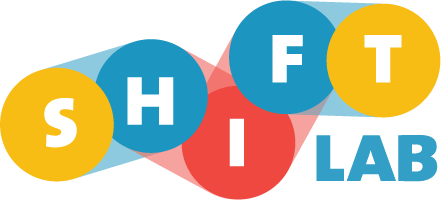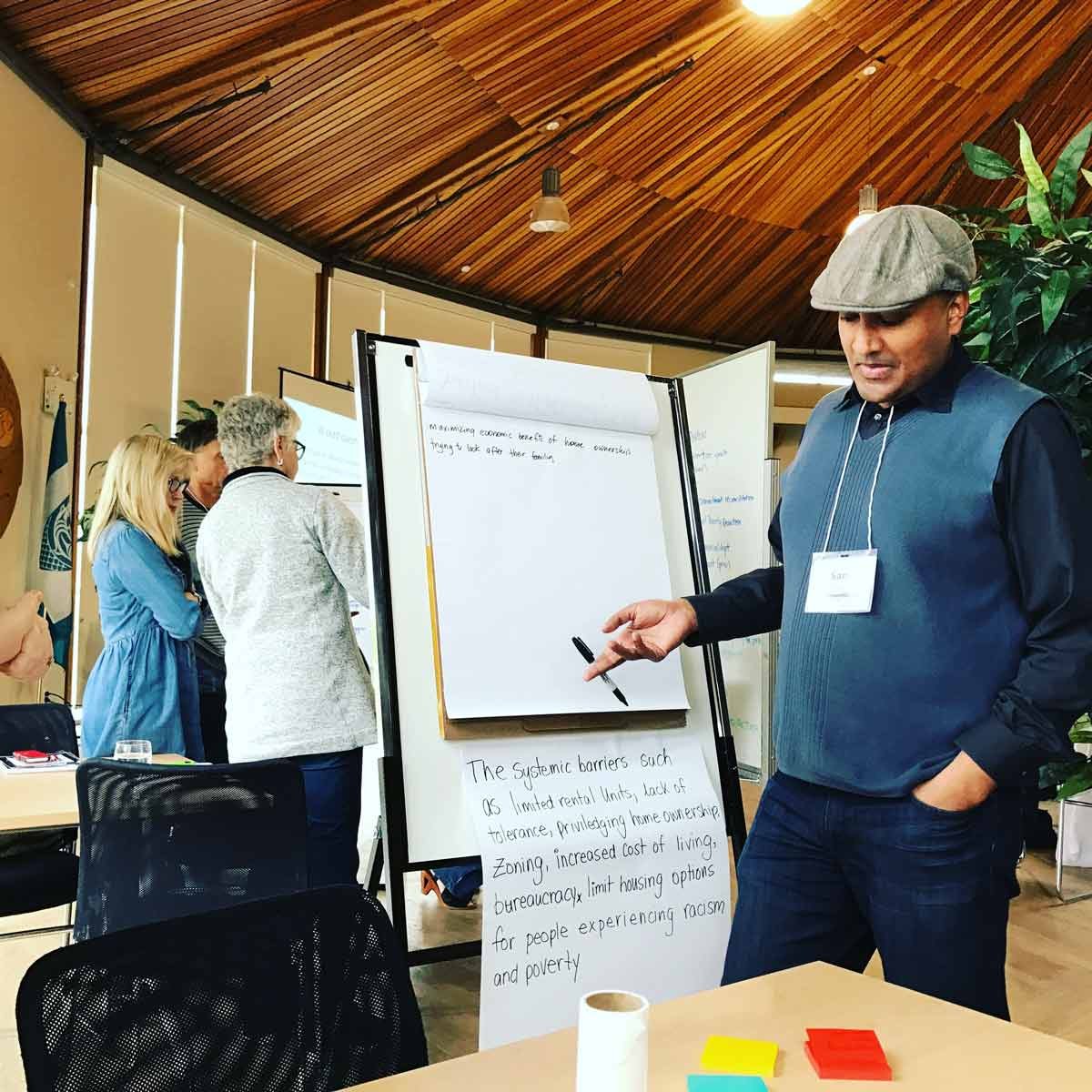Confronting Wicked Problems: LabWISE Recap
How do we deal with "wicked" problems? Problems that defy easy, straightforward answers; problems riddled with incomplete, unknown or shifting information; problems that frequently bedevil decision-makers in the policy, non-profit and public administration spaces? Well, we squirreled away to the Musqueam Cultural Centre on Coast Salish territory at the fingernail-tip of Vancouver to find out, courtesy of the Waterloo Institute for Social Innovation and Resilience (WISIR), and its groundbreaking LabWISE program.
The Shift Lab Stewardship team with Frances Westley, Cheryl Rose, and LabWISE mentors.
The LabWISE Process
LabWISE was a three-day workshop geared at helping organizations create and launch social innovation labs to tackle their respective wicked problems. These groups represented a spectrum of social innovation: from environmental awareness and Indigenous education to healthcare advocacy and poverty reduction and many other issues. Many of these teams were just starting out on their systems thinking journeys, so no two organizations came at this from the same perspective.
The sessions were led by Dr. Frances Westley, the J.W. McConnell Chair in Social Innovation and co-author of Getting to Maybe and Experiments in Consilience as well as Cheryl Rose, the Director of the Social Innovation Generation at the University of Waterloo. Along with a number of researchers & facilitators (including a PhD computer modeler who also patented a pair of collapsible high-heel shoes!), this team coached and coaxed us through several problem-framing and issue-identification exercises.
Wicked problems carry inherent contradictory tensions that prevent quick conclusions. We explored this tension with a number of techniques. My favourite was nicknamed “The Horns of the Dilemma.” We posited two seemingly-opposed propositions to an issue and tried to derive a question that satisfied both tensions (“how might we,” or HMWs, are another popular approach to this). In our case, we used the lens of housing to examine the intersection of racism and poverty. So after some exploration, we landed on “how might we have housing that provides secure housing options on the one hand, while still allowing the freedom to choose where and how we want to reside?” We then shared it with a couple of teams from Toronto looking at poverty reduction & arthritis prevention to cross-pollinate ideas.
Collaboration between the very different groups was key to LabWISE. Like the shipping barges that drifted past us on the Fraser River, bound for the Strait of Georgia and the Pacific Ocean beyond, we would periodically break into twos and threes, wandering the grounds in serious Socratic dialogues, metaphorically searching for answers to very high level questions. LabWISE itself emerged after a series of conversations and research between the Danish Design Centre, Stanford’s d. School, the Helsinki Design Lab & MaRS from Toronto.
Understanding systems dynamics and scoping problems didn’t always happen quickly. It is fair to say that after several abstract conversations about epistemologies and cosmologies, each of us had a "huh?" moment during LabWISE. After 3 days, I know my head hurt at times, as did the other members of the Stewardship Team. Thinking about thinking can be hard work!
Sam and Jodi, illuminated by new knowledge!
What's next?
There was a great emphasis on whole systems processes and seeing the system fully. Of course, with only three days, there was much left to be explored, including prototyping, data engagement, overcoming resistance, and several other steps. Thankfully, we will be rejoining our colleagues at LabWISE & Waterloo at the beginning of the spring, so please check back to see what we’ve learned!



